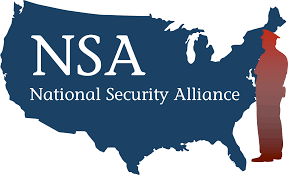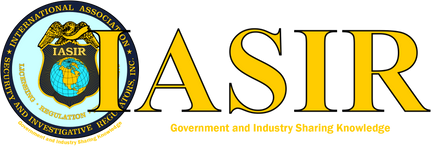
Advice for security guards on the rise
Tips, Tools & Tactics November 2025 Vol 5
Careers in security can be incredibly challenging and rewarding. Today’s guards are transforming the face of security through the integration of technology and advanced training strategies, which enhance their value to clients and in the public eye.
With the right skills, adaptability, and a commitment to lifelong learning, there are few limits to what you can achieve.
This month’s newsletter covers five trending security topics and golden nuggets of learning to inform your conduct and career trajectory.
Observation Essentials: Training Your Eye for What Matters
Sharp observational skills and situational awareness help to secure people and property. While this is a foundational skill, there is always room for improvement. Practicing awareness techniques can make these concepts instinctive and significantly reduce your response times.
It’s not just about looking around—it’s about using all senses to absorb the entirety of the landscape. A technique many seasoned guards practice is “wide-angle watching.” Here’s how you do it: while on the job, take 30 seconds to scan your environment for anomalies, hazards, and movement patterns. Get in the habit of repeating this exercise every few minutes, and it will become second nature. In practice, you will notice unusual activity quicker and will be able to respond appropriately in the moment, which may help you avert an incident altogether.
Explore advanced observational and situational training here:
https://defencifytraining.com/collections/training-on-demand
Know the Limits: Legal Guidelines for Safe Detainment
Do you understand the limits of your authority? It’s easy to overstep when the heat is on, but the law has clear language around what security guards can and cannot do when detaining a subject.
First, your actions must be based on reasonable suspicion and must comply with your state’s regulations regarding citizens’ arrests. Guards must always bear in mind that they are civilians in the eyes of the law. Yes, you are a first responder – but you do not have the same authority as law enforcement. Some basic points to remember:
• Your jurisdiction is limited to the property you are employed to protect.
• You can detain an individual based on reasonable grounds or direct knowledge of a crime being committed, especially on guarded property.
• You cannot hold someone based solely on suspicion unless you are certain the crime has occurred, or you witnessed it directly.
• Excessive force is illegal. Guards may use the minimum force necessary to prevent the suspect from leaving the scene or harming others.
• Detention must be temporary and only as long as it takes for law enforcement to arrive and assume custody.
Law enforcement must be engaged immediately. Accurate documentation is your best defense against a use-of-force complaint. Be concise, factual, and do not add assumptions, bias, or emotions. Body cameras are an excellent support and can help strengthen your case.
Read our article on Understanding the Legal Responsibilities and Limits as a Security Guard for more insights.
AI in Surveillance: Tools That Support (Not Replace) Your Judgment
Technology integrations in security have increased significantly in recent years, and many guards are wondering whether tools like AI will replace their posts. The simple answer is, not a chance. While we’re seeing more AI-powered applications in the field, their real power is in how they support guarding. In truth, you simply can’t replace humans in guarding, but advanced tech can make the job safer and more efficient – not to mention expanding a guard’s ability to surveil and patrol larger areas.
Modern AI security technology has the capacity to process millions of data points in a single image or video, enabling analysis at a scale that would be impossible for a human to accomplish. Think of technology and AI as a valued partner, providing eyes and expertise that inform your next move. Once you’ve received the alert, it’s up to you to choose how to respond using empathy, diplomacy, and your best judgment.
So, stay alert, verify AI alerts IRL, and don’t forget to document AI-supported actions in your daily reports.
To learn more about AI trends in modern security, read our article on the Future of Guarding here.
Stepping Up: Building the Skills to Become a Supervisor
Leveling up your security career is an excellent way to turn a job into a lifelong vocation. Supervisory positions are the gateway to management and an excellent vehicle to hone your people and organizational skills—all of which are essential for advancement.
But what does a supervisor do? While they tend to be experienced guards, they are also responsible for training, motivating, and being a role model for the guards and teams they oversee. Here are some of the essential skills that will help you succeed as a supervisor:
• Leadership
• Decision-making
• Good people skills
• Strong communication
• Problem-solving
• Organizational skills
Supervisors are responsible for ensuring their teams comply with the firm’s policies and the law. Understanding these limitations and being willing to enforce them are part of the job. If you believe you would make a great supervisor and are ready to level up, consider investing in Defencify Academy’s Bronze, Silver, and Gold certifications to demonstrate your commitment to guarding excellence.
Rapid Response: When Training Turns into Real-Life Impact
Guards make a difference in people’s lives every day. A Manchester school security guard saved the lives of four students over 18 months by performing the Heimlich maneuver.
An off-duty guard in Saskatoon spotted smoke coming from a home and stopped to ensure people and neighbors got out of the house, as no firefighters were on scene. He saved the lives of four people and two pets that day and received an award of merit for his quick thinking.
In another incident, a guard on mall patrol noticed smoke near an exit door. He followed protocol, alerting management, clearing the area of nearby shoppers, and using his radio to call in backup. His calm response prevented a major evacuation and averted disaster for the property.
These are just a few examples of how a guard’s observation skills and instinct make a difference every day. Ever vigilant, guards provide an essential service, performing life-saving techniques and serving as a vital lifeline to first responders, enabling them to perform their jobs more efficiently.
The lesson here? Always trust your instincts and follow procedures. Small signs often lead to big saves.
Coming Next Month
• De-escalation Tactics That Actually Work
• How to Write Reports That Hold Up in Court
• VR Training Tools: The Future of Security Education






